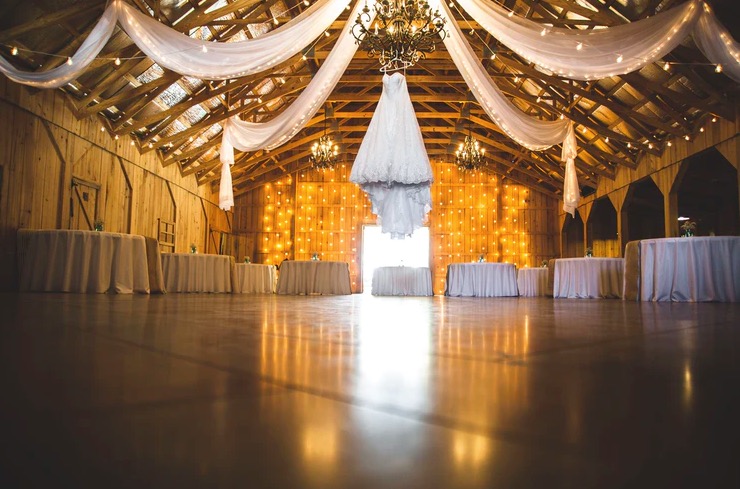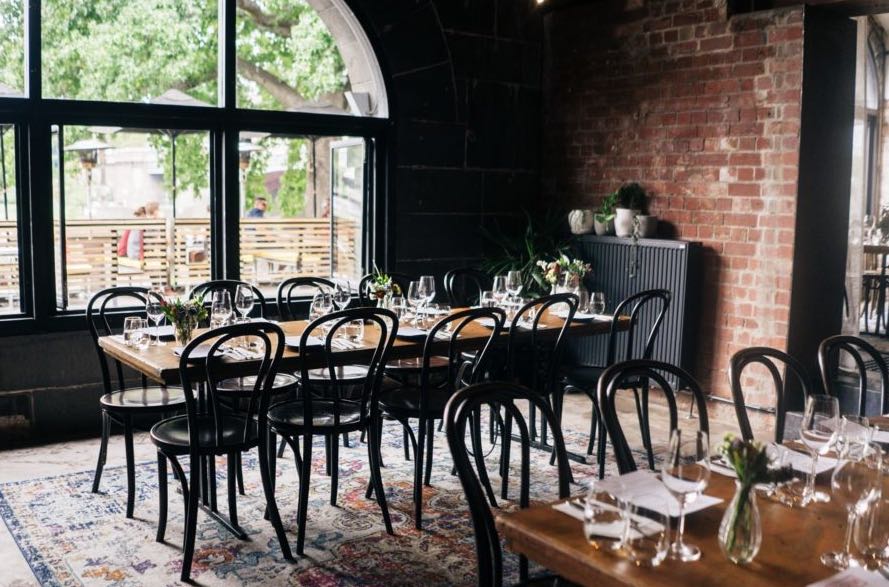When I first started working with couples on finding the perfect wedding venue, I quickly realised there was a lot more to it than just picking a pretty space. One of the most important steps in the process? Getting the right venue license. Without it, you can’t legally host a wedding, and things can quickly spiral out of control. Whether you’re just starting a wedding venue or already running one, understanding the licensing process is crucial. In this guide, I’ll walk you through the steps to secure your venue’s license, with tips from my own experience in the industry.
The Importance of a Wedding Venue License and Why It Matters
When I was in the early stages of planning my own wedding, I quickly realised that there’s much more to running a venue than just pretty décor and a fancy sound system. A venue needs a license for a legal marriage ceremony, and this wasn’t something I gave much thought to initially. Trust me, I learned the hard way that without the right permits, a wedding venue can face hefty fines, not to mention losing its ability to operate altogether.
A licensed wedding venue is one that’s legally approved to host civil ceremonies. In Australia, this means the venue has to meet strict safety, zoning, and public accessibility requirements. It’s not just about ticking boxes; the process ensures that couples can tie the knot in a safe, legal environment.
Not only is a venue license legally required to host official ceremonies, but it’s also something that builds credibility. When I worked with a couple from Geelong who were searching for their wedding venue, one of the first things they asked was, “Is this venue licensed?” It wasn’t just about the look and feel of the place; it was about knowing they were legally covered.
Understanding the Role of Wedding Venue Permits
Getting the right permits and licences is more than a formality—it’s a safeguard. Without the proper licensing, a venue risks not only facing fines but also jeopardising its clients’ wedding days. For example, I had a friend whose venue was forced to shut down the week of their event because they hadn’t followed through on renewing their venue license. Imagine that chaos! They ended up scrambling to find a last-minute alternative. Thankfully, they were able to secure a temporary permit, but that experience gave me a real insight into why these licenses are so crucial.
Wedding venue permits serve a variety of purposes. They ensure that the venue complies with fire and health safety regulations, meets zoning requirements, and adheres to local laws. Essentially, the venue owner and staff need to be able to prove that they can host an event in a way that’s safe for the couple, the guests, and the broader public.
Risks of Operating Without a Wedding Venue License
The risks of operating without a proper wedding venue license can be severe. If a venue operates illegally, it may be forced to close its doors and face financial penalties. Worse still, without a license, weddings that take place there would not be legally recognised.
I’ve heard of venues getting into hot water for not complying with wedding venue regulations. One venue in Melbourne had to pay hefty fines because they didn’t have the right zoning permit. They had been hosting events without checking that the location was suitable for such gatherings. Eventually, they were hit with legal action, which impacted their reputation and business operations. If you’re planning to open a wedding venue or already own one, make sure that you’re not skipping the vital steps to get your license!
Eligibility and Requirements for Getting a Wedding Venue License
Opening a wedding venue in Australia isn’t as simple as putting up some fairy lights and setting a date. There are a series of strict requirements that must be met before you can legally host a wedding ceremony. These requirements vary by state and council, but in general, they are designed to ensure the venue is safe, accessible, and able to cater to the legal needs of a wedding ceremony.
From personal experience, when I worked with a couple looking for a venue in Melbourne, they had their hearts set on a stunning, heritage-listed building. However, the venue wasn’t initially approved for weddings, so the owner had to go through the lengthy process of applying for a wedding venue license. While it took time, it was well worth the effort to ensure everything was in order for their big day.
What Makes a Wedding Venue Eligible for a License?
For a venue to be eligible for a wedding venue license in Australia, it needs to meet specific criteria, which include:
- Permanent structure: The venue must be a fixed and permanent building, such as a hotel, hall, or historic building. Temporary structures like marquees or tents, or outdoor venues without a permanent structure, generally won’t qualify.
- Health and safety compliance: The venue must meet strict fire safety and health regulations. This includes having fire exits, emergency lighting, fire extinguishers, and a fire safety plan in place.
- Zoning and accessibility: The venue must be in an area that’s zoned for events and public gatherings. This often requires obtaining a zoning permit.
- Public accessibility: The venue must be open to the public for regular use, not just for private events. This is important for ensuring the venue is available for civil ceremonies and civil partnerships on a consistent basis.
The Importance of Fire and Safety Regulations
When my partner and I were researching wedding venues for our own big day, one thing we quickly realised was how much fire and safety compliance came into play. It wasn’t just about having an aesthetically pleasing venue; it was about ensuring guests could move around safely in the event of an emergency.
In Australia, these regulations can include having emergency exits clearly marked, a fire evacuation plan in place, and the necessary equipment to keep guests safe in the event of a fire. The fire safety inspections are stringent, and they must be passed before a venue can be licensed for weddings. Without these, a venue may not be able to obtain a wedding venue license.
The Wedding Venue Licensing Process: Step-by-Step
So, you’ve found the perfect location, and the venue meets all the basic eligibility criteria—what’s next? Here’s a breakdown of the general process for applying for a wedding venue license in Australia.
How to Apply for a Wedding Venue License
The process of applying for a wedding venue license can vary depending on your local council, but the general steps are as follows:
- Research Local Regulations: Start by researching the specific requirements in your local council area. Each region in Australia has its own set of guidelines regarding venue licensing. For example, in Melbourne, the council will need to approve the specific rooms where the wedding ceremonies will be held, as well as the overall suitability of the venue.
- Contact the Local Council: It’s a good idea to speak with your local council or the relevant registration office. They can provide guidance on the process, help you understand what paperwork is required, and let you know about any inspections or fees that may be involved.
- Submit Your Application: Once you’ve got all the required documentation, you can submit your application. Make sure to include all necessary details, such as a floor plan of the venue, a fire risk assessment, and proof of business insurance. Some councils may also ask for additional information depending on the venue’s specific use.
- Council Inspection: After your application is submitted, the council will arrange a visit to inspect the venue. They’ll assess the venue for safety compliance, public accessibility, and whether it meets the zoning requirements.
- Public Notice: In many councils, a public notice must be displayed at the venue to inform the public about the application for a wedding venue license. This is to give local residents the opportunity to raise any objections within a set period, usually around 14-21 days.
Timeline and Fees for Wedding Venue Licensing
The timeline for obtaining a wedding venue license can vary, but on average, it takes about 4 to 8 weeks for your application to be processed after all documents and payments are received. Once the council is satisfied, they will approve the license, allowing you to legally host weddings.
As for the fees, these can vary by council, but expect to pay anywhere from $1,500 to $2,500 for the application. Additional fees may be required for inspections, room additions, or renewals. Some councils charge a fee for the public notice, which can range from $100 to $500.
In my experience, fees are often reasonable, but make sure to factor them into your business budget. When I helped a venue in Ballarat secure its wedding license, the fees seemed steep at first, but they were a necessary investment in making sure the venue could legally host weddings.
Post-Licensing Conditions for Wedding Venues
Once your venue receives its wedding venue license, it’s essential to understand that this comes with a set of responsibilities and ongoing conditions. It’s not just a ‘set and forget’ scenario. Here’s what you need to know about post-licensing conditions.
Adhering to Licensing Conditions
After your wedding venue license is granted, you’ll need to follow a range of ongoing conditions to maintain your license. These conditions can vary based on your local council, but some of the key requirements include:
- Having a ‘responsible person’ present at all ceremonies: This person is typically the venue manager or a designated staff member who is responsible for ensuring that everything runs smoothly during the ceremony. They must be present at least an hour before the ceremony starts.
- No religious ceremonies: The ceremonies held at your venue must be civil in nature. If your venue hosts any religious ceremonies, the license could be revoked.
- Regular availability for ceremonies: Your venue must be available on a regular basis for civil ceremonies or partnerships. You cannot limit the use of your venue to only one or two events.
What Happens If You Don’t Follow the Rules?
Failure to comply with licensing conditions can lead to serious consequences. If you don’t adhere to the terms of the license, whether it’s allowing religious ceremonies or failing to provide adequate parking or facilities for the registrar, your license could be revoked. This is something to take seriously, as running an unlicensed venue could result in heavy fines or being forced to cease operations.
Other Essential Licenses and Permits Wedding Venues Need
While securing a wedding venue license is one of the most important steps, it’s not the only permit you’ll need before you can start hosting weddings. From a business license to alcohol permits, a range of other licenses and documents are necessary to ensure your venue operates legally and safely. As I’ve seen firsthand, the more prepared you are in advance, the smoother the process will go.
Beyond the Wedding Venue License: What Other Permits Do You Need?
Here’s a breakdown of some of the other common licenses and permits that wedding venues need to operate legally in Australia:
- Business License: This is required to run your venue as a business. The business license ensures that your venue complies with local council rules regarding business operations. Depending on your location, you may need to submit a business plan, proof of insurance, and evidence that your venue meets local health and safety codes.
Liquor License: If you plan to serve alcohol at your venue, whether it’s beer, wine, or spirits, you’ll need a liquor license. Liquor licenses are regulated by each state in Australia, and the process can be lengthy and detailed. As I’ve learned through helping a venue in Sydney obtain its liquor license, it involves background checks, a detailed application process, and sometimes even consultations with local police. There are different classes of liquor licenses, depending on whether you’re offering BYO or providing full bar service. Without this, you’ll risk a hefty fine or a shutdown. - Zoning Permit: Your venue must be located in a commercial or designated event zone. This zoning requirement ensures that your venue is in an area where large public gatherings, like weddings, are legally allowed. For example, I worked with a venue in Brisbane that was initially operating without confirming its zoning permit. This oversight delayed their license approval, costing them time and money. It’s crucial to check zoning regulations before making any large investments in a venue.
- Health and Safety Permits: These permits ensure that your venue complies with health regulations, especially if you’re hosting large events or offering food services. This may involve inspections by local health officers to ensure food safety, sanitation, and hygiene practices are in place. If your venue serves food or works with caterers, be prepared for additional inspections.
- Fire Safety and Occupancy Permits: Fire safety is one of the most critical aspects when it comes to hosting events. Your venue will need to pass a fire safety inspection, which includes verifying that the venue has sufficient fire exits, smoke detectors, fire extinguishers, and emergency lighting. The fire department will also determine the maximum occupancy, based on the size of your venue, available exits, and safety systems. For example, one venue I consulted with in Melbourne had to redesign its entry and exit points to meet fire regulations before it could get its occupancy permit.
- Food Handling and Catering License: If your venue serves food directly or partners with caterers who will be preparing food on-site, a food handling license is required. This ensures that proper food safety standards are followed, from preparation to serving. If you work with external caterers, make sure they are fully licensed as well, or else your venue could be liable.
Venue Licensing by Location: What You Need to Know
The licensing process in Australia is generally consistent across the country, but there are some variations in how different states and councils approach wedding venue licensing. Whether you’re in Melbourne, Sydney, or Perth, each region will have its specific rules and regulations.
Wedding Venue Licensing in Australia: Key Takeaways
- State-Specific Requirements: Each state in Australia has its own regulations regarding the licensing of wedding venues. This includes fire safety regulations, zoning, and the types of venues eligible for a wedding license. Always start by checking the requirements with your local council or registry office to ensure compliance.
- Melbourne Example: In Melbourne, wedding venues must submit a floor plan showing the designated ceremony room(s) as well as a fire safety plan. Additionally, they need to show evidence that the venue complies with local health and safety regulations. The application fee for a wedding venue license in Melbourne generally ranges from $1,500 to $2,500, depending on the venue’s size and the number of rooms.
- Sydney Example: In Sydney, wedding venues are also required to submit a comprehensive application, including details about the venue’s layout, occupancy limit, and a fire safety certificate. One key difference in Sydney is the stricter enforcement of noise control. Venues are often required to submit an acoustic report if they plan to host live music or entertainment. The fees in Sydney can vary, but generally start around $1,800 for a basic application.
Regional Differences in Licensing
If your wedding venue is located in a rural or remote area, there may be some differences in the process. For example, some rural councils might have more relaxed zoning requirements, while others may require additional documentation to prove that your venue can handle large events safely.
As someone who worked with a rural venue outside Adelaide, I saw firsthand how different the process can be. The venue was in an area where local council staff weren’t as familiar with wedding venues, so we had to work extra hard to ensure they understood the unique requirements for a wedding venue, particularly around zoning and parking. Thankfully, with some collaboration and patience, we secured the license.
Navigating the Wedding Venue Licensing Process
Getting your wedding venue licensed isn’t a quick process, but with the right preparation and understanding of the requirements, it can be a smooth experience. Here are a few key takeaways:
- Understand Local Regulations: Each state and council has its own specific requirements, so it’s crucial to research the local rules before applying for a venue license.
- Comply with Health and Safety Standards: Fire safety, food handling, and health compliance are all essential to ensure your venue is up to standard. Don’t skip these steps—getting these right will give you peace of mind.
- Check Zoning and Business Permits: Ensure your venue is in a zone that allows public events and weddings. Also, don’t forget to secure your business and other essential operating licenses.
- Work with the Local Council: Build a relationship with your local council early on. They’ll be your main point of contact throughout the application process and can provide valuable insights and guidance.
Let’s Get Straight to the Point
Securing a wedding venue license in Australia is a must for hosting legal ceremonies. It ensures your venue complies with safety, zoning, and public accessibility regulations. The process involves applying through your local council, submitting necessary documents, and passing inspections. Fees vary but typically range from $1,500 to $2,500. Post-license conditions include ongoing compliance with fire safety, health regulations, and ensuring the venue is regularly available for ceremonies. Other essential permits include business, liquor, and food handling licenses. By following these steps, you can ensure a smooth, legal operation for your venue.




